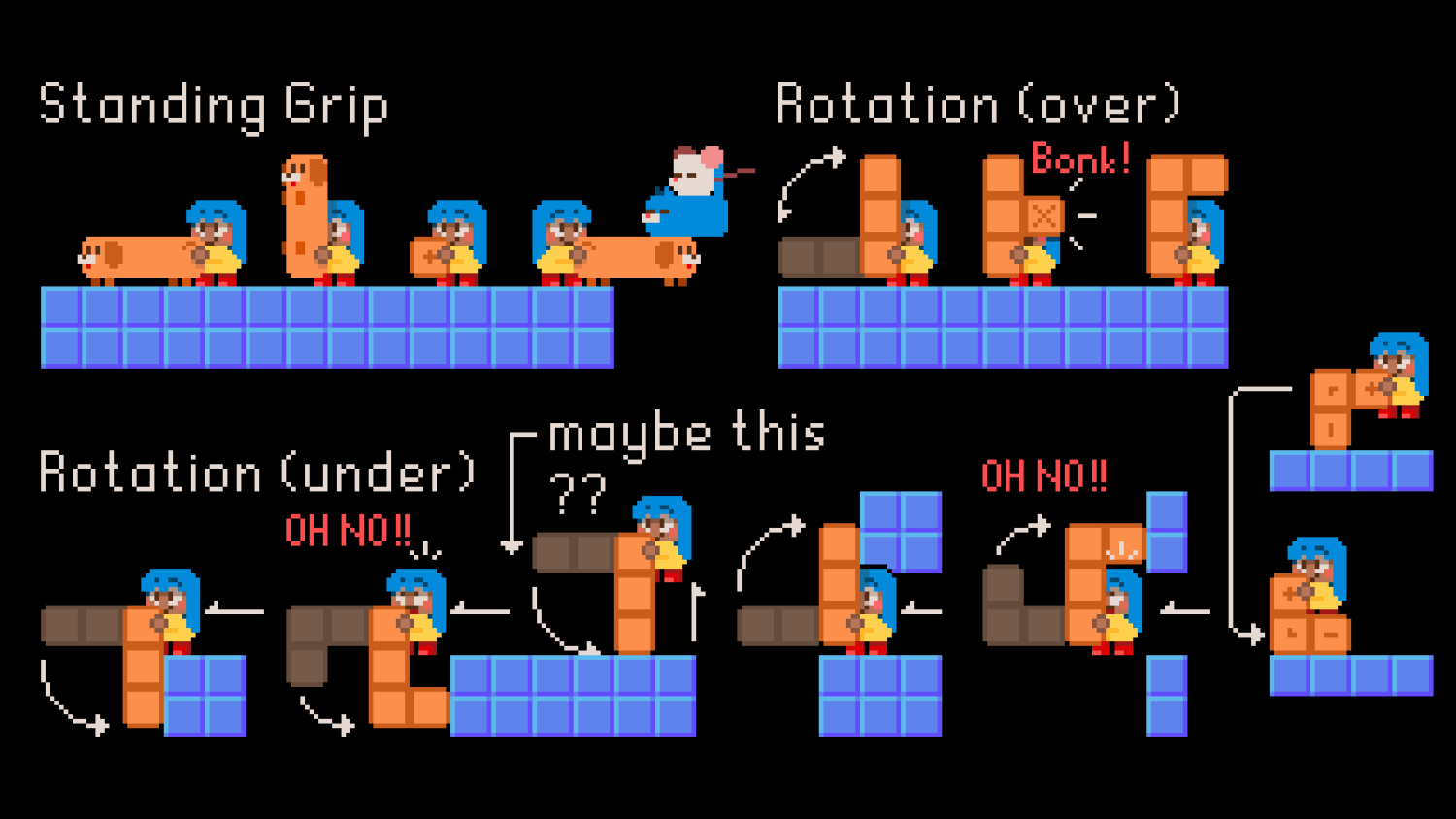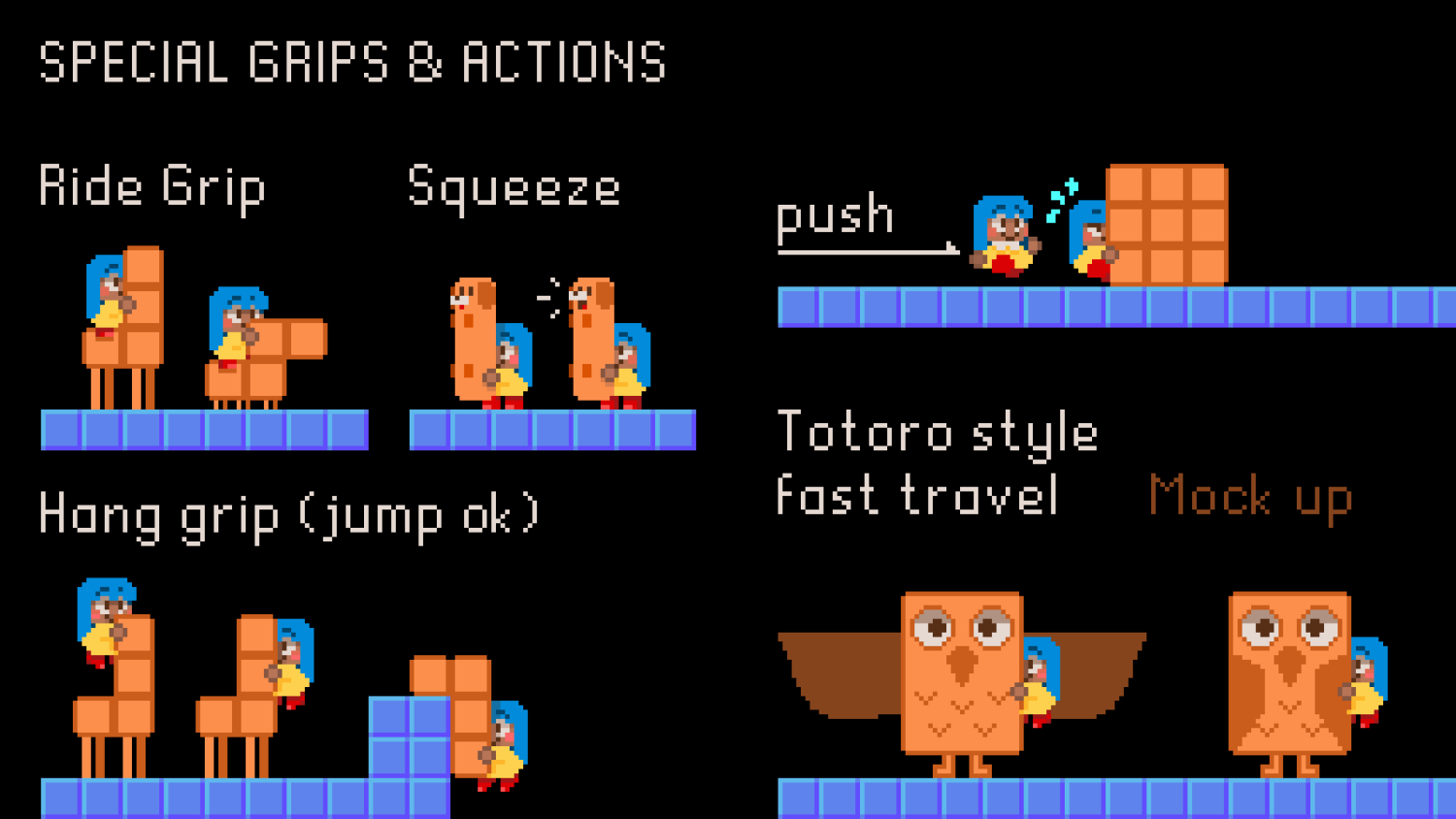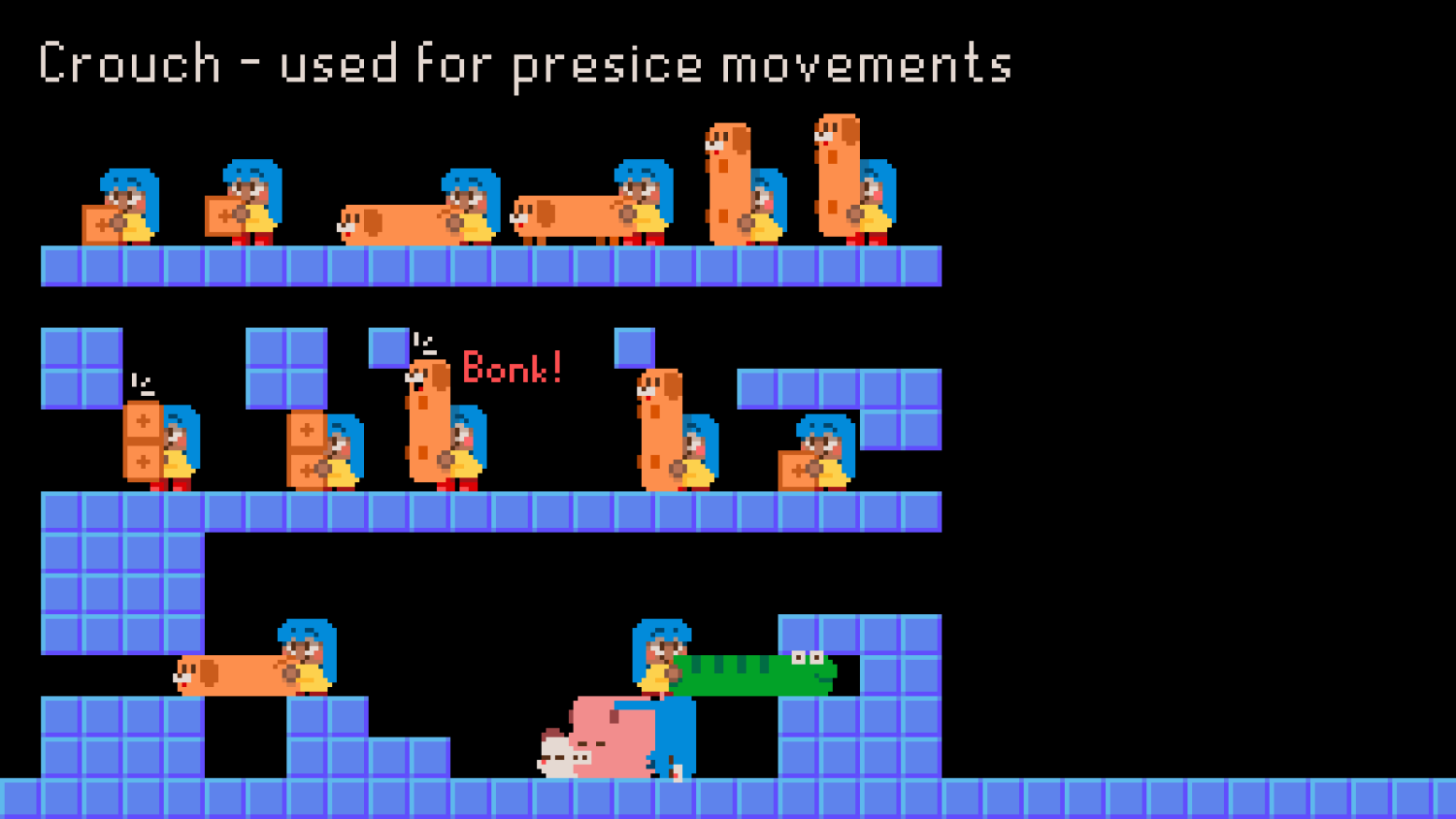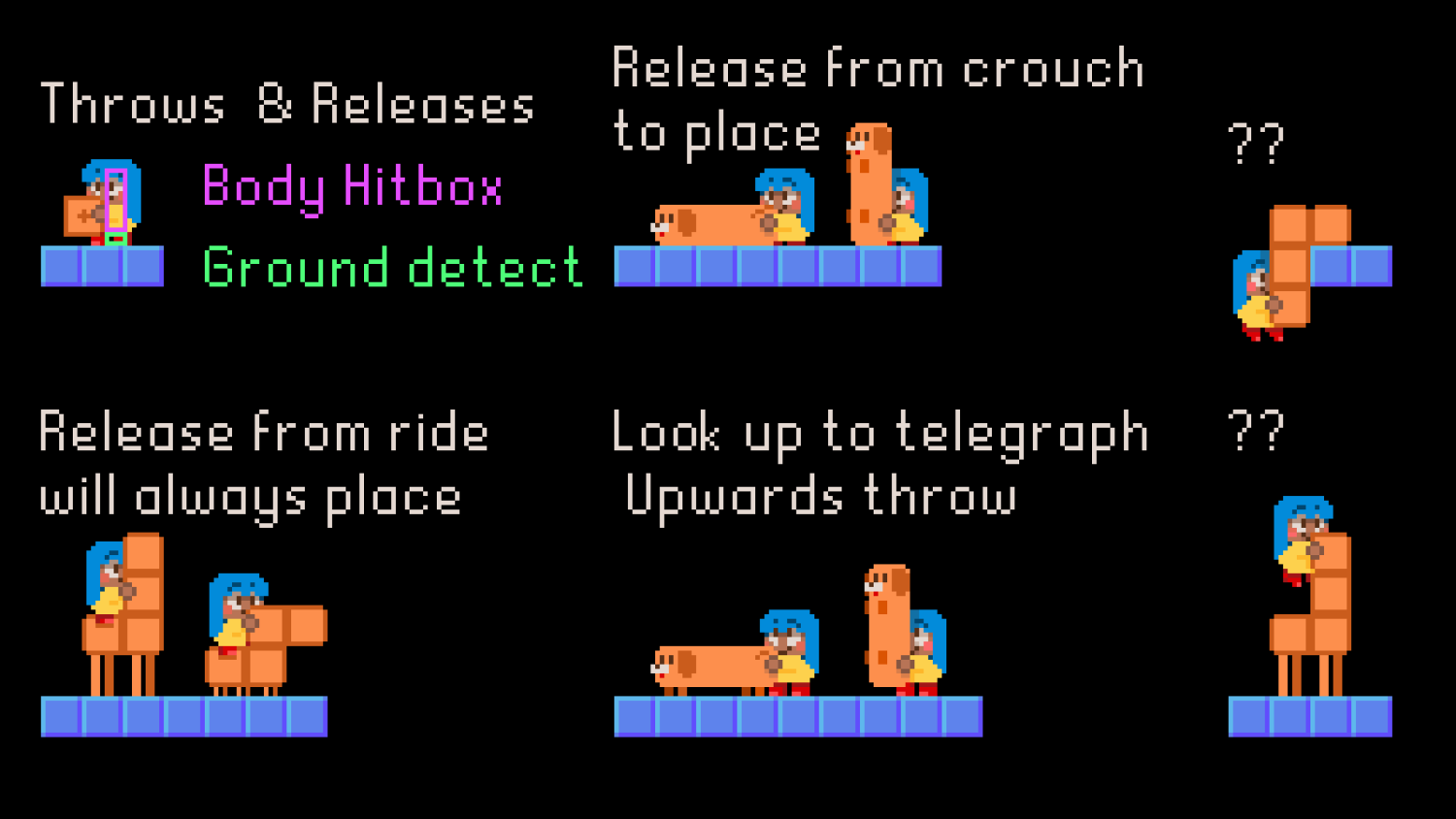CAN WE KEEP IT ?
A puzzle-platform game featuring tetris-shaped animals.
Global Game Jam 2024
Theme: “Make me laugh”
Role: Design, Character Art and Animation
Engine: Godot
Play on itch: Can we keep it?
The team was invited to showcase the game at BUS’s Vancouver Game Dev Series a month after the jam.
Playing the game at an angle was hard XP
A CHEEKY IDEA WITH BIG POTENTIAL
The initial premise of Can We Keep It? (CWKI) began with the idea of a cheeky child
sneaking animals home and hiding them from their parents in odd spaces, stuffing them
in awkward, uncomfortable configurations. From there, making the animals Tetris-shaped
naturally followed.
I firmly believe there’s no such thing as a "bad" idea, though some are certainly more
fertile than others, and the initial premise of CWKI is rich with potential! The core
mechanics of picking up and rotating critters, fitting them into tight spaces, is clear
right from the start. The idea is further strengthened by familiar elements of well established
game mechanics and animal iconography, combined in a novel context!
STARTING WITH THE PUZZLE PIECES
I started with sprites for the polyomino critters because it would help establish the scale of the game. I wanted to capture the classic NES look because for me, it’s where Tetris and classic puzzle platforming converge. I was also heavily influenced by Bubble Bobble because, as far as I’m concerned, it’s the cutest game on the NES, and for CWKI, cute is a critical design priority!
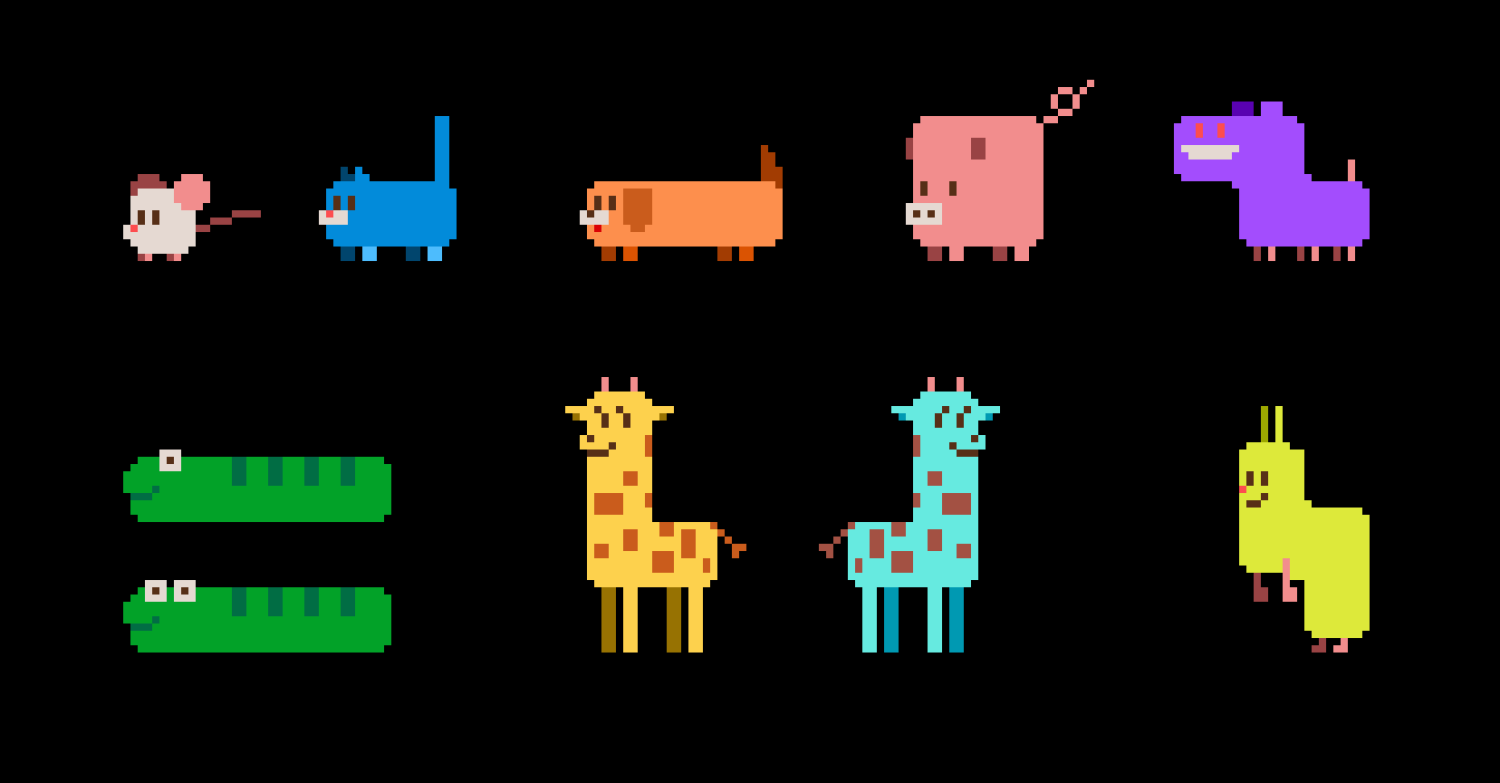
I started with the monomino, domino, and trinomino blocks, following the classic trinity
of cartoon animals: mouse, cat, dog. Then I moved onto the tetrominos. When I reached the
L-shape, I suddenly realized I needed a mirrored version - thus, Mirror-Giraffe
was born (the blue one). Mirror-Giraffe opened up the possibilities of a parallel mirror world,
which was great because I had been struggling to find real-world analogues for the S and Z blocks.
To give each critter a little more character in the time constraints of a 48-hour jam I tweaked
existing critter attributes, for example, making the larger animals heavier. A nice surprise was
turning gravity off for the mirror animals which resulted in some interesting jump techniques.
DESIGNING RAINDROP
I based Raindrop’s movement and control scheme on 2D Mario games, inspired by how POW blocks
and crates are used in Mario Maker’s puzzle-themed courses. To enhance the puzzle element,
I scaled down movement, encouraging players to be more deliberate and tying traversal more
directly to puzzle-solving.
I set Raindrop’s walk speed as slow as I dared. Unlike 2D Mario games, movement is analog,
using the stick for finer control. The minimum jump height was set to clear four blocks,
high enough to reach platforms while still allowing Raindrop to walk under them, making it
easier to incorporate verticality into the levels.
PAWS-ITIVELY PROMISING
The game jam prototype proved several key aspects of Can We Keep It?: picking up and placing
critters has inherent appeal, puzzle-platforming with these mechanics is viable, and the premise
itself invites creativity. However, before full development, several areas still need to be tested.
Key components of the core mechanics are missing, and both the game's structural and narrative
framework need further development. Clarifying the project's vision, scope, and design goals will
also be essential. There's strong interest within the team to bring this game to life, but for now,
we're all navigating life’s demands. Fingers crossed, we’ll get it into production eventually.
Here are some game mechanic proposals I drew up post-jam.
